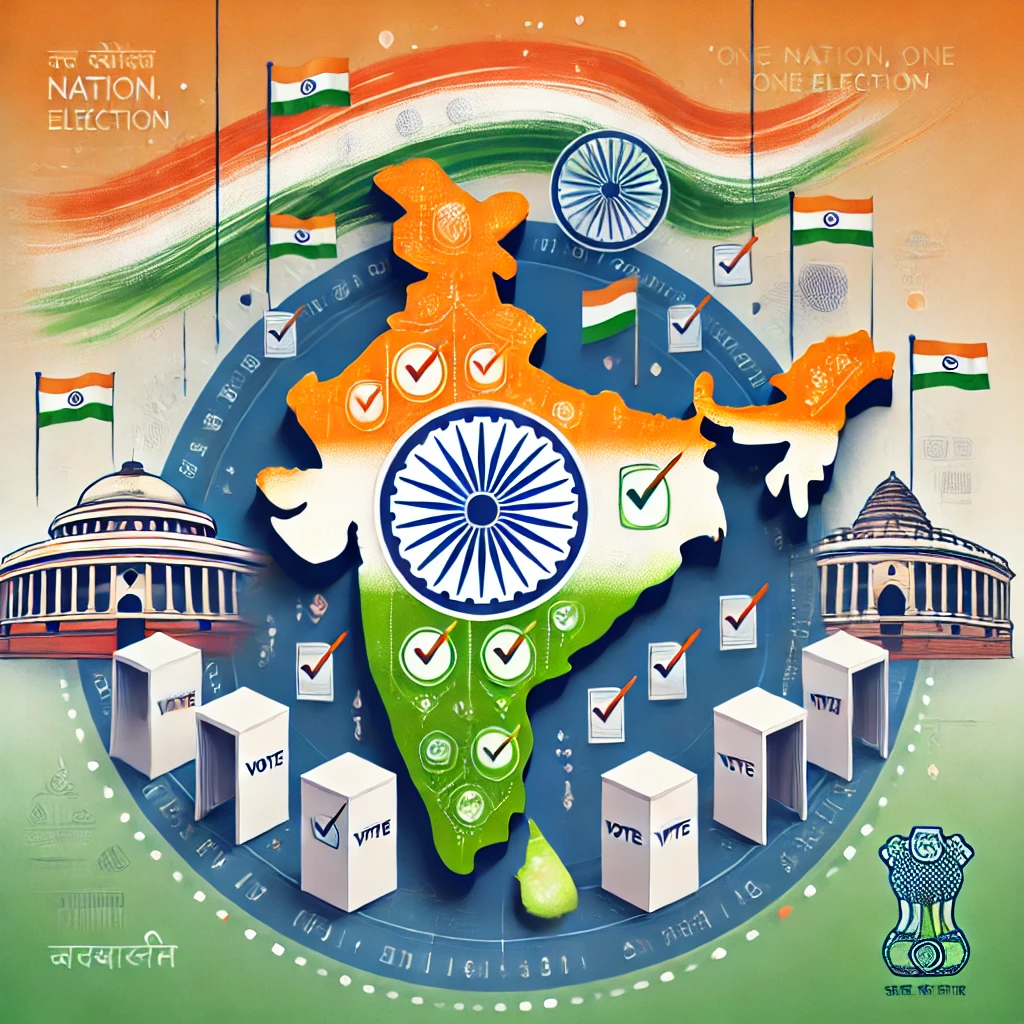One Nation, One Election: A New Chapter in Indian Democracy
The approval of the “One Nation, One Election” proposal by the Modi government marks a significant step in reshaping the election process in India. This proposal aims to synchronize the elections for both the Lok Sabha (House of the People) and state legislative assemblies, ensuring they are conducted together. The primary objective is to avoid the constant cycle of elections, which often hampers governance and leads to massive expenditure. While this initiative is set to bring about operational efficiency and reduce election-related disruptions, there are several key challenges and considerations.
Importance of the Proposal:
By holding simultaneous elections, the government intends to eliminate the repeated enforcement of the model code of conduct, which freezes policy decisions and development work whenever elections take place. India, with its diversity of states, frequently faces elections in one part or another, leading to policy delays. This proposal aims to ensure the government can focus more on governance rather than constantly preparing for elections.
Benefits:
- Reduction in Election Expenditure: Conducting simultaneous elections can significantly reduce the cost of organizing elections, which includes logistics, security, and other related expenditures. Estimates suggest that billions of rupees could be saved with this approach.
- Time and Resource Efficiency: Holding elections together would streamline the deployment of resources like security personnel, election commission staff, and polling machinery, saving considerable time and effort.
- Political Stability: Frequent elections often lead to political instability, where governments focus on populist measures instead of long-term policies. With synchronized elections, governments could focus on consistent and uninterrupted governance, improving overall political stability.
Challenges:
- Constitutional Amendments: Implementing the “One Nation, One Election” proposal will require significant constitutional changes. Currently, the Constitution allows states to have their own electoral cycles, and aligning them with the national cycle will need both legal amendments and consensus-building among political stakeholders.
- State Autonomy: India operates under a federal system where states have distinct powers, including deciding when to hold their own elections. Many opposition parties argue that this proposal infringes on the autonomy of states and weakens federalism. Achieving political consensus in this diverse landscape is a significant hurdle.
- Electoral Synchronization: Currently, different states have varying election timelines, with some governments having just started their term while others are close to the end. Bringing all states in sync with the national election schedule would require complex adjustments, including either extending or shortening the terms of some state governments, which could be politically contentious.
Opposition’s Perspective:
Several opposition parties have voiced concerns over the proposal, stating that it could centralize power in the hands of the ruling party. They argue that staggered elections allow voters to make more informed choices by evaluating the performance of governments over time. Moreover, opposition leaders fear that synchronized elections might lead to national issues overshadowing local state-level concerns, thereby affecting the diversity of political representation in the country.
Conclusion:
The “One Nation, One Election” proposal is a bold and ambitious attempt to reform India’s electoral landscape. While it promises significant benefits in terms of cost reduction, governance efficiency, and political stability, the challenges in its implementation—especially those related to constitutional amendments and federal autonomy—cannot be ignored. To ensure the success of such a policy, it is crucial for the government to engage in a broad, inclusive dialogue with all political parties and stakeholders to address concerns and build consensus.
Ultimately, this initiative could transform Indian democracy, but its success will depend on how well the country navigates the complexities of its diverse political landscape.







